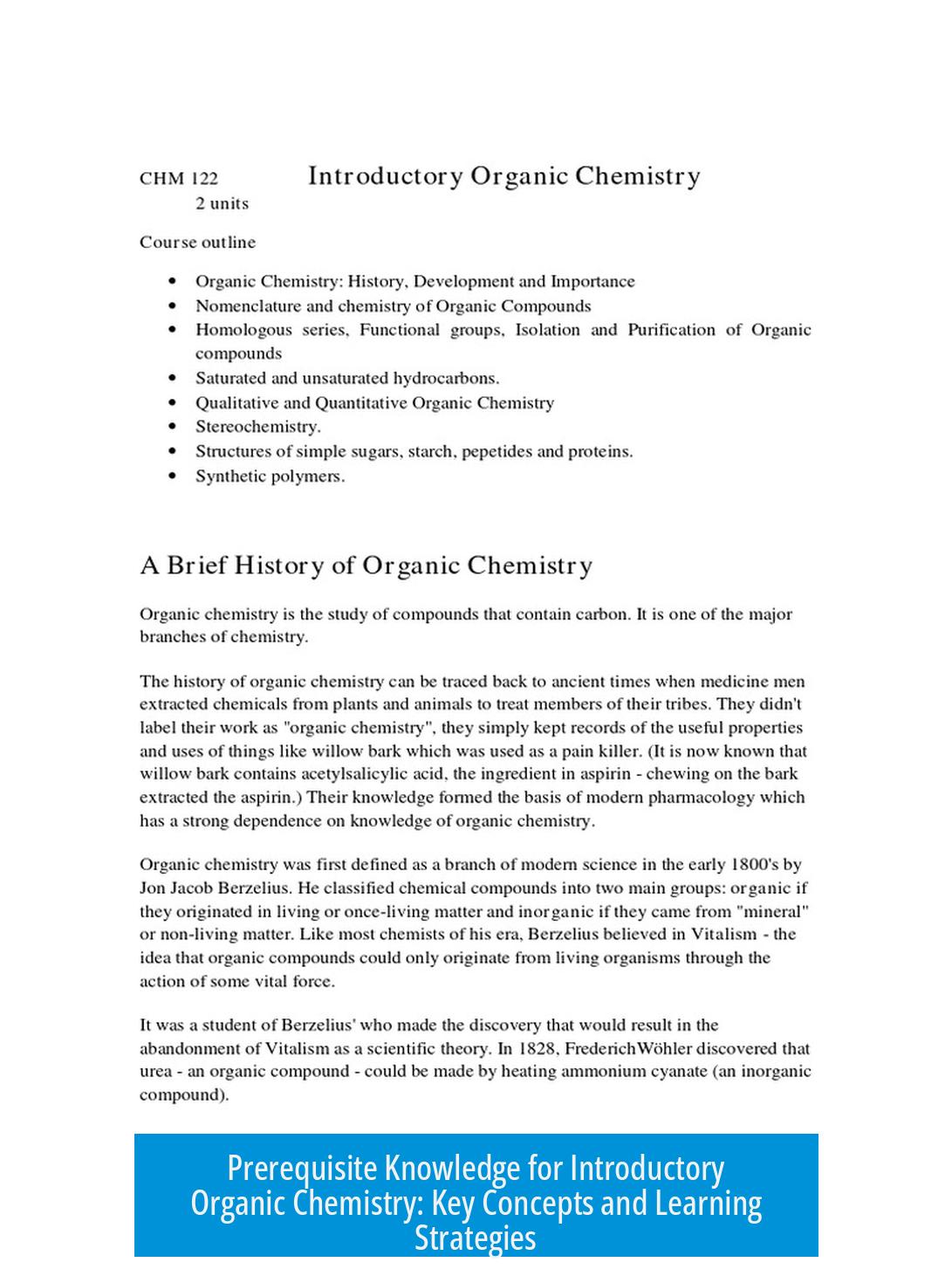Prerequisite Knowledge for Introductory Organic Chemistry
Success in introductory organic chemistry requires a solid grasp of electron movement, electronegativity patterns, common reaction types, stoichiometry, and basic quantum chemistry concepts. This foundation supports a deeper understanding of organic reactions beyond memorization.
Understanding Electron Movement and Electronegativity
At the core of organic chemistry is electron flow during reactions. Learning how electrons move between atoms and bonds clarifies reaction mechanisms. Equally important is grasping electronegativity, which predicts how electrons distribute in molecules. This aids in identifying reactive sites and understanding molecule stability.
Recognizing Standard Reaction Types
Instead of memorizing individual reactions, focus on broad reaction categories such as substitution, addition, elimination, and rearrangement. These standard types explain many organic transformations and reveal common patterns in mechanisms.
Stoichiometry Fundamentals
Basic quantitative skills are necessary to balance reactions and calculate molar ratios of reactants and products. This ensures accurate reaction predictions and practical laboratory work.
Basic Concepts in Quantum Chemistry
A qualitative understanding of molecular orbitals, including Highest Occupied Molecular Orbitals (HOMOs) and Lowest Unoccupied Molecular Orbitals (LUMOs), assists in predicting how molecules interact. Concepts like the Born-Oppenheimer approximation and hyperconjugation deepen comprehension of reaction preferences and intermediates.
Emphasizing Conceptual Learning Over Memorization
Organic chemistry demands a shift from rote memorization toward conceptual reasoning. Appreciating why bonds form or break, rather than treating reactions as black boxes, is essential. This approach mirrors the success of chemistry majors compared to students relying solely on memorization.
Recommended Learning Resources
Textbooks such as those by David Klein provide structured treatment of foundational topics. They emphasize mechanisms and guide learners to conceptual mastery.
Benefits of Peer Discussion and Support
Engaging with peers or instructors to discuss problems and concepts reinforces understanding and broadens perspective in organic chemistry.
| Prerequisite | Why it matters |
|---|---|
| Electron movement | Explains how bonds change during reactions |
| Electronegativity | Predicts electron distribution and reactivity |
| Reaction types | Identifies common patterns in mechanisms |
| Stoichiometry | Ensures quantitative accuracy in calculations |
| Quantum concepts | Clarifies molecular orbital interactions |
- A strong foundation in electron behavior and electronegativity supports mechanism comprehension.
- Recognizing reaction types reduces reliance on memorization.
- Stoichiometry skills ensure balanced and practical chemical understanding.
- Basic quantum chemistry concepts provide insight into reaction preferences.
- Adopting a conceptual approach boosts long-term retention and success.
What basic chemistry skills should I know before starting organic chemistry?
You should understand electron movement, electronegativity, standard reaction types, and stoichiometry. These form the foundation for grasping organic mechanisms and reactions.
How does knowing electronegativity help in organic chemistry?
Electronegativity helps predict where electrons will move in molecules. It explains how atoms attract electrons, influencing reaction pathways.
Why is memorizing reactions less effective than understanding concepts?
Organic chemistry is about patterns and electron flow. Understanding why reactions happen helps you apply knowledge to new problems instead of just recalling facts.
Should I study quantum chemistry before organic chemistry?
A basic, qualitative grasp of concepts like molecular orbitals (HOMOs and LUMOs) and hyperconjugation helps explain reaction behavior but deep quantum study is not required.
What role does stoichiometry play in organic chemistry?
Stoichiometry lets you calculate amounts of reactants and products. This skill is important for lab work and understanding reaction yield.





Leave a Comment